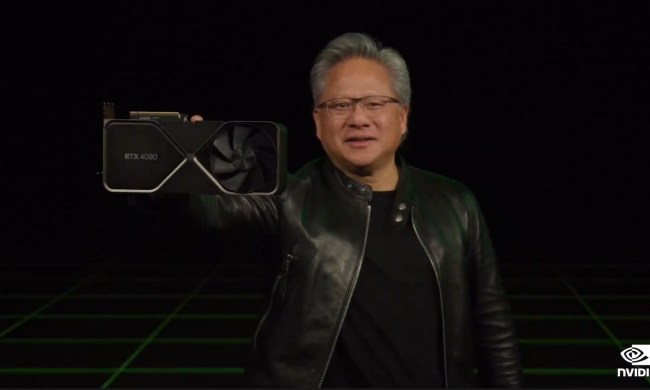
Imagine a laptop with an iteration of Nvidia’s ARM-based CPU combined with a powerful RTX graphics card, all enhanced by AI. Years ago, that would have sounded outlandish, but now it seems like it could actually happen.
In a recent interview with Bloomberg, Nvidia CEO Jensen Huang and Dell CEO Michael Dell more or less confirmed that Team Green will enter the AI-PC hype next year.
This is not the first time we have heard about Nvidia’s plans to make ARM-based CPUs. Back in October 2023, there were reports of Microsoft pushing companies to enter the market in a move to compete with Apple’s M-series chips, including Nvidia and AMD. Currently, Qualcomm has exclusivity on making ARM-based Windows laptops, but that is reportedly coming to an end after 2024.
Nvidia has been harnessing the power of AI for years, most prominently its machine learning and deep learning-based innovations like DLSS and ray tracing available exclusively with RTX graphics cards. Additionally, the company’s AI research division advances fields like computer vision and natural language processing, while their enterprise GPUs power data centers and cloud AI services. In terms of hardware specifically on the CPU front, Nvidia has the Grace Hopper Superchip for advanced workstations, and in the past, we’ve seen the Tegra series SoC.
While there’s a huge chance that Nvidia is going to play safe, I honestly wouldn’t mind a low-powered SoC for handheld consoles or maybe even compact gaming laptops.
With all the big names in computing gravitating toward creating an AI-enhanced PC ecosystem, this move is significant in the context of increasing demand for intelligent computing solutions. AI-specific chips can handle a variety of tasks, including natural language processing, real-time data analysis, and advanced image and video processing. These capabilities not only improve performance but also enable new features that can enhance user experience in both consumer and professional settings.
This could turn out to be a huge opportunity for Nvidia. Not only can the company help solidify Windows on ARM as a platform alongside the recently announced Copilot+ PCs but it might have what it takes to go beyond the boundaries and create a more holistic ecosystem that combines AI and gaming. Having firm control over the CPU could potentially unlock new levels of gaming experiences not only limited to laptops but also consoles and desktops.
It’s too early to speculate what Nvidia has in store for us, but by the looks of it, 2025 is already looking like an interesting year for laptops.




